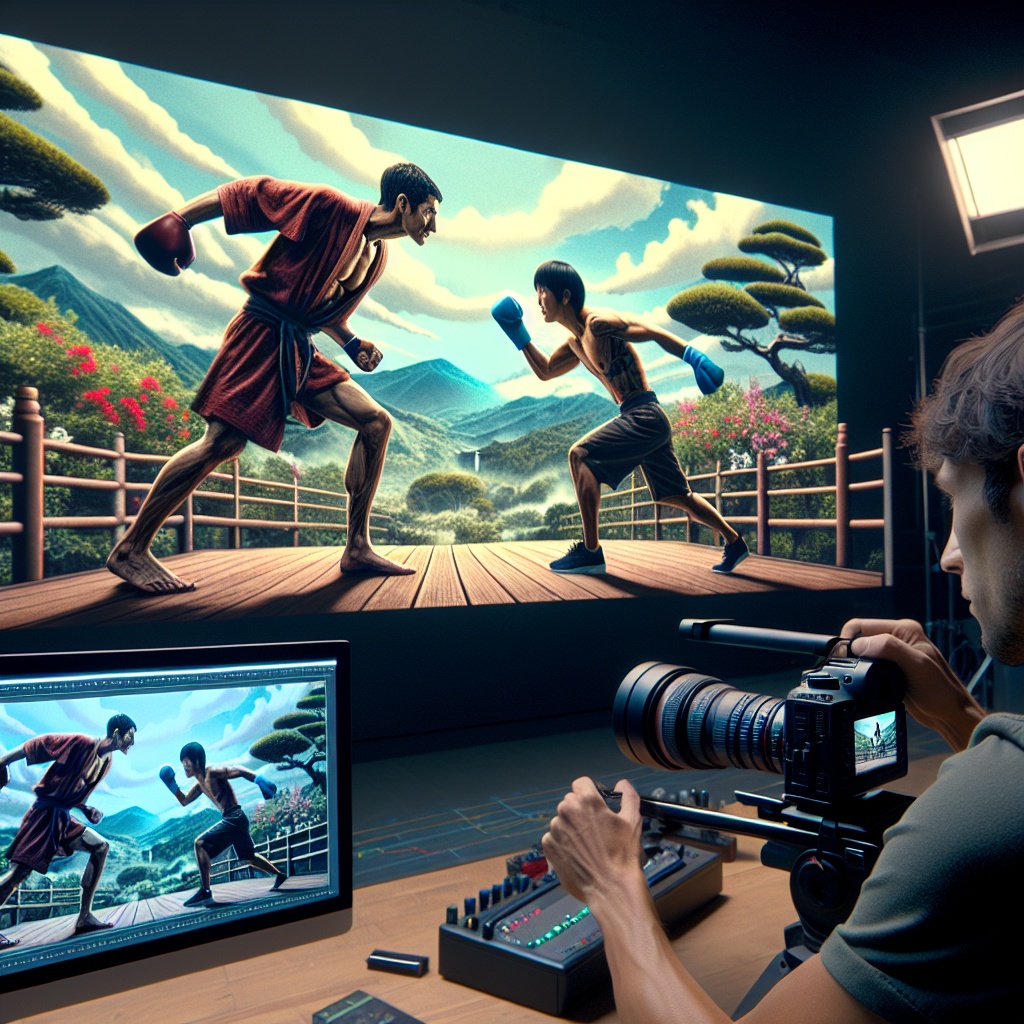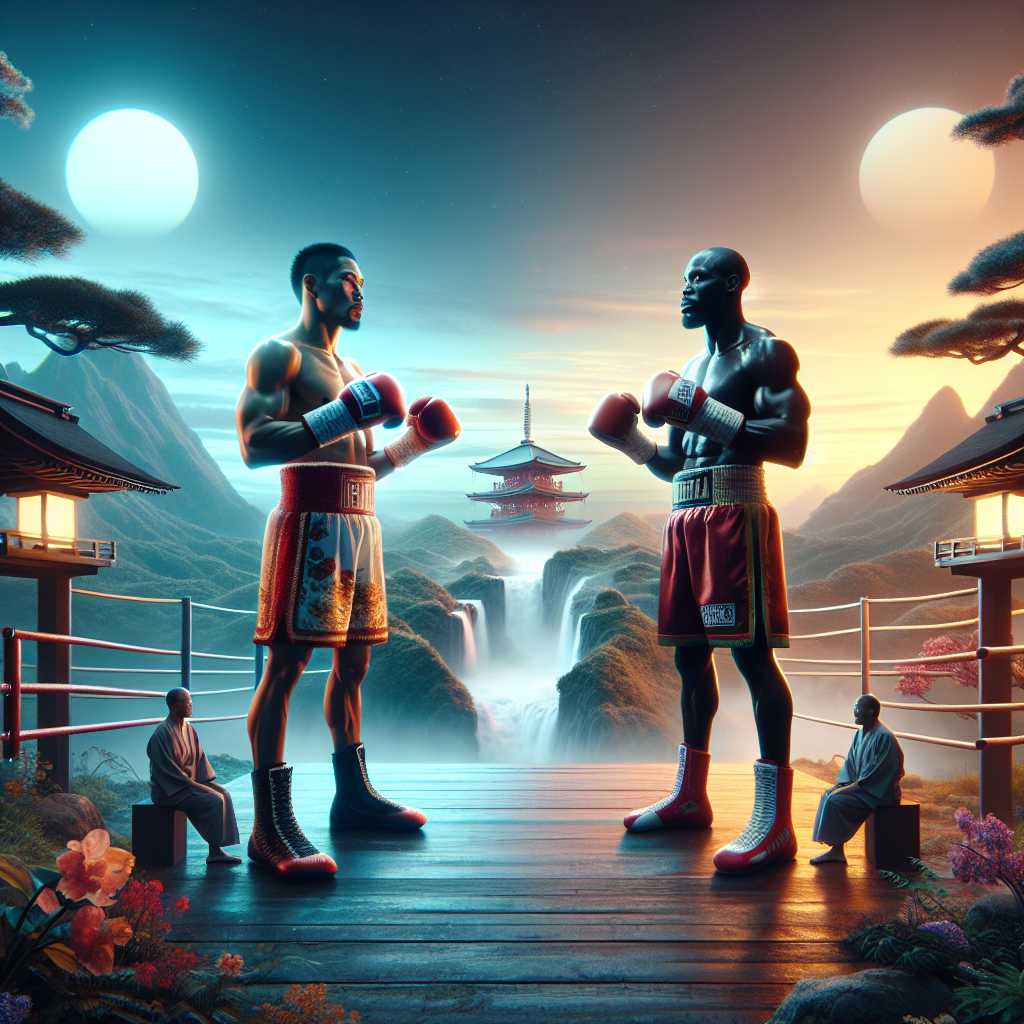Pacquiao teases Mayweather rematch in Japan

Pacquiao vs. Mayweather: The Potential Impact of a Rematch in Japan on Boxing History
The world of boxing has long been captivated by the rivalry between Manny Pacquiao and Floyd Mayweather Jr., two of the sport’s most iconic figures. Their first encounter in 2015 was billed as the “Fight of the Century,” drawing massive global attention and generating unprecedented revenue. Now, with recent hints from Pacquiao about a potential rematch in Japan, the boxing community is abuzz with speculation and anticipation. This development could have significant implications for the sport, both in terms of its historical context and its future trajectory.
To understand the potential impact of a rematch, it is essential to consider the legacy of their initial bout. The 2015 fight, held in Las Vegas, was a culmination of years of negotiations and public demand. Although Mayweather emerged victorious by unanimous decision, the fight left many fans and analysts divided. Some criticized it for not living up to the hype, citing a lack of action and Pacquiao’s post-fight revelation of a shoulder injury. Despite these criticisms, the event set records for pay-per-view buys and revenue, underscoring the immense drawing power of both fighters.
A rematch in Japan would not only rekindle this storied rivalry but also introduce new dynamics. Japan, with its rich boxing tradition and growing market, presents a unique venue that could attract a diverse audience. The country’s enthusiasm for combat sports, coupled with its state-of-the-art facilities, makes it an ideal location for such a high-profile event. Moreover, staging the fight in Japan could symbolize a shift in boxing’s global landscape, highlighting the sport’s expanding reach beyond traditional strongholds like the United States and Europe.
Furthermore, a rematch could serve as a pivotal moment in the careers of both fighters. For Pacquiao, who has continued to compete at a high level despite his age, it represents an opportunity to avenge his previous loss and solidify his status as one of the greatest boxers of all time. On the other hand, Mayweather, who has been largely inactive since his retirement, could use the rematch to reaffirm his legacy and potentially extend his unbeaten record. The stakes are undeniably high, and the outcome could have lasting implications for how both fighters are remembered in the annals of boxing history.
In addition to its historical significance, the rematch could also influence the sport’s future. The financial success of the first fight demonstrated the lucrative potential of marquee matchups, and a second bout could further underscore this trend. It might inspire promoters and fighters to pursue similar high-profile contests, thereby shaping the business model of boxing in the years to come. Additionally, the fight could serve as a catalyst for increased interest in boxing among younger audiences, particularly in Asia, where the sport is gaining popularity.
In conclusion, the prospect of a Pacquiao-Mayweather rematch in Japan is laden with potential ramifications for boxing. It offers a chance to revisit a legendary rivalry, explore new markets, and influence the sport’s future direction. As fans and analysts eagerly await further developments, the possibility of this rematch serves as a reminder of boxing’s enduring appeal and its capacity to captivate audiences worldwide. Whether or not the fight materializes, the mere suggestion of it has already sparked a renewed interest in the sport, highlighting the timeless allure of two of its most celebrated figures.
Cultural and Economic Implications of Hosting Pacquiao-Mayweather Rematch in Japan

The prospect of a rematch between boxing legends Manny Pacquiao and Floyd Mayweather Jr. has once again captured the imagination of sports enthusiasts worldwide. This time, the potential venue is Japan, a country with a rich history in martial arts and a burgeoning interest in boxing. The cultural and economic implications of hosting such a high-profile event in Japan are significant, offering a unique opportunity to explore the intersection of sports, culture, and commerce.
Culturally, Japan has long been a nation that reveres combat sports, with traditional disciplines such as judo, karate, and sumo wrestling deeply embedded in its heritage. The introduction of a Pacquiao-Mayweather rematch would not only honor this tradition but also serve to elevate boxing’s status within the country. The event could act as a bridge, connecting the historical appreciation for martial arts with the modern spectacle of professional boxing. This fusion of old and new could invigorate local interest in the sport, inspiring a new generation of Japanese boxers and potentially leading to increased participation at both amateur and professional levels.
Economically, the implications are equally compelling. Japan’s economy, the third-largest in the world, is well-positioned to benefit from the influx of international visitors and media attention that such a high-profile event would attract. The rematch would likely draw fans from across the globe, eager to witness the clash of these two titans. This influx of tourists would provide a substantial boost to local businesses, from hotels and restaurants to retail outlets and transportation services. Moreover, the global media coverage would shine a spotlight on Japan, enhancing its reputation as a premier destination for international sporting events.
In addition to the immediate economic benefits, hosting the rematch could have long-term positive effects on Japan’s sports industry. The event would showcase Japan’s capability to host large-scale international events, potentially leading to future opportunities in the realm of sports tourism. This could align with Japan’s broader strategic goals of increasing its global presence and influence in the sports world, particularly as it continues to recover from the economic impacts of the COVID-19 pandemic.
Furthermore, the rematch could serve as a catalyst for cultural exchange, fostering greater understanding and appreciation between Japan and the Philippines, as well as the United States. Manny Pacquiao, a national hero in the Philippines, and Floyd Mayweather, an iconic figure in American sports, both carry significant cultural weight. Their presence in Japan could encourage dialogue and collaboration between these nations, promoting a spirit of camaraderie and mutual respect.
In conclusion, the potential Pacquiao-Mayweather rematch in Japan presents a multifaceted opportunity that extends beyond the boxing ring. Culturally, it offers a chance to celebrate and integrate Japan’s martial arts heritage with contemporary boxing. Economically, it promises a substantial boost to local businesses and enhances Japan’s standing as a host for international events. Ultimately, the event could serve as a powerful symbol of cultural exchange and cooperation, reinforcing the bonds between nations through the universal language of sport. As anticipation builds, the world watches closely, eager to see if this tantalizing prospect will come to fruition.
Training and Strategy: How Pacquiao and Mayweather Could Prepare for a Rematch in Japan
In the world of boxing, few rivalries have captured the public’s imagination quite like that of Manny Pacquiao and Floyd Mayweather Jr. Their first encounter in 2015 was billed as the “Fight of the Century,” drawing millions of viewers and generating unprecedented revenue. Now, with Pacquiao teasing a potential rematch in Japan, the boxing community is abuzz with speculation. As fans and analysts alike ponder the implications of such a high-profile event, it is crucial to consider how both fighters might approach their training and strategy to prepare for this potential showdown.
Manny Pacquiao, known for his relentless speed and aggressive style, would likely focus on maintaining his physical conditioning and refining his technique. At 44 years old, Pacquiao’s training regimen would need to be meticulously planned to ensure he remains competitive against a younger opponent. Emphasizing cardiovascular endurance and agility would be paramount, as these attributes have been central to his success in the ring. Additionally, Pacquiao might incorporate more advanced recovery techniques, such as cryotherapy and hyperbaric oxygen therapy, to aid in muscle recovery and reduce the risk of injury.
On the other hand, Floyd Mayweather Jr., renowned for his defensive prowess and strategic acumen, would likely prioritize a different set of training objectives. Despite being retired, Mayweather has maintained a rigorous fitness routine, which would serve as a solid foundation for his preparation. His focus would likely be on sharpening his defensive skills and ensuring his reflexes remain razor-sharp. Mayweather’s ability to anticipate and counter his opponent’s moves has been a hallmark of his career, and he would undoubtedly seek to preserve this edge through targeted sparring sessions and tactical drills.
As both fighters prepare, the choice of location—Japan—adds an intriguing dimension to their training strategies. The country’s unique cultural and environmental factors could influence their approach. For instance, Japan’s emphasis on discipline and precision might inspire both fighters to adopt a more holistic training philosophy, incorporating elements such as meditation and mindfulness to enhance mental focus. Furthermore, the time zone difference and climate could necessitate adjustments in their training schedules to optimize performance on fight night.
In terms of strategy, Pacquiao might aim to exploit any perceived vulnerabilities in Mayweather’s defense, leveraging his speed and power to break through the latter’s renowned guard. This approach would require meticulous planning and execution, as Mayweather’s ability to adapt mid-fight is unparalleled. Conversely, Mayweather would likely focus on neutralizing Pacquiao’s offensive onslaught, employing his trademark shoulder roll and counter-punching techniques to frustrate and outmaneuver his opponent.
Ultimately, the potential rematch between Pacquiao and Mayweather in Japan presents a fascinating scenario for boxing enthusiasts. Both fighters would need to draw upon their extensive experience and adapt their training and strategy to meet the unique challenges posed by this high-stakes encounter. As the boxing world eagerly awaits further developments, the prospect of witnessing these two legends face off once more serves as a reminder of the enduring allure of the sport and the timeless appeal of a great rivalry.

